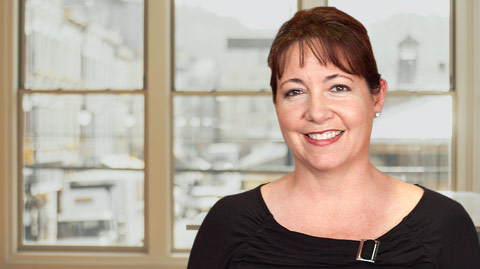May Is Mental Health Awareness Month
Health & WellnessWritten by Dana Nolan, MS, LMHC | Edited By Amy Edel

For more than 70 years, the month of May has been recognized as Mental Health Awareness month. Its goal is to increase awareness of mental health issues in our community and decrease the stigma toward people struggling with mental health issues.
For those dealing with cancer diagnoses such as mesothelioma, the focus on mental health and emotional well-being is a much more recent development in cancer care. It wasn’t until the mid-1970s that the psychological and emotional impact of being diagnosed and treated for cancer was a focus of research and clinical interest.
The field of psycho-oncology emerged, aiming to research mental health issues in cancer patients and provide mental health treatment to cancer patients and their loved ones as they navigated the ups and downs of cancer treatment.
Navigating a Cancer Diagnosis
Long before I was a mental health counselor, I was diagnosed with a rare type of cancer while I was in college in 1987. I received my cancer treatment at a state-of-the-art, university-based cancer center in a major metropolitan city and I am grateful that I received amazing care there.
In 1987, however, there were no support groups or counselors available to me to talk with as I navigated the scary experiences of my cancer treatment.
No one on my health care team ever asked if I was sleeping OK, having any symptoms of anxiety or if I was struggling in my personal relationships. If they had asked, they would have known that I was struggling with all of those issues in addition to the physical side effects of my cancer treatment.
How Does Psycho-Oncology Benefit Mesothelioma Patients?
In the several decades since my own cancer diagnosis and treatment, the field of psycho-oncology has flourished. A great deal of clinical research with cancer patients has revealed what they and their families are struggling with emotionally, socially and psychologically from diagnosis through treatment and into survival.
From that growing body of research, we have developed mental health standards of care that are being offered to cancer patients and their loved ones at comprehensive cancer centers throughout the U.S. and around the world. We now know that the incidence of anxiety, depression and sleep disturbance is much higher in cancer patients.
We have developed psychoeducational programs aimed at helping those who are newly diagnosed with cancer to cope more effectively with the overwhelming emotions and social challenges that they face. Today, many oncologists regularly screen their patients for emotional distress and provide pharmaceutical treatment to their patients when they are struggling with sleep problems, depression or anxiety.
Since 1995, I have worked in the field of psycho-oncology as an educator, mental health counselor, support group facilitator and researcher. Today there is much less stigma around talking about mental health issues, which helps cancer patients feel more comfortable talking about how they are feeling emotionally. More cancer patients are seeking support from their peers in cancer support groups or from oncology counselors.
I am grateful to have had the opportunity to facilitate The Mesothelioma Center’s monthly online Mesothelioma Support Group since 2013. In our group, we give mesothelioma patients and their caregivers a place to share their successes and challenges in a safe environment and to offer the opportunity to seek support from their peers.
Here at The Mesothelioma Center, our patient advocates are available to give you information about our support group or to provide you with assistance in finding qualified mental health services in your community. You can reach a patient advocate at 1-877-626-5916.




